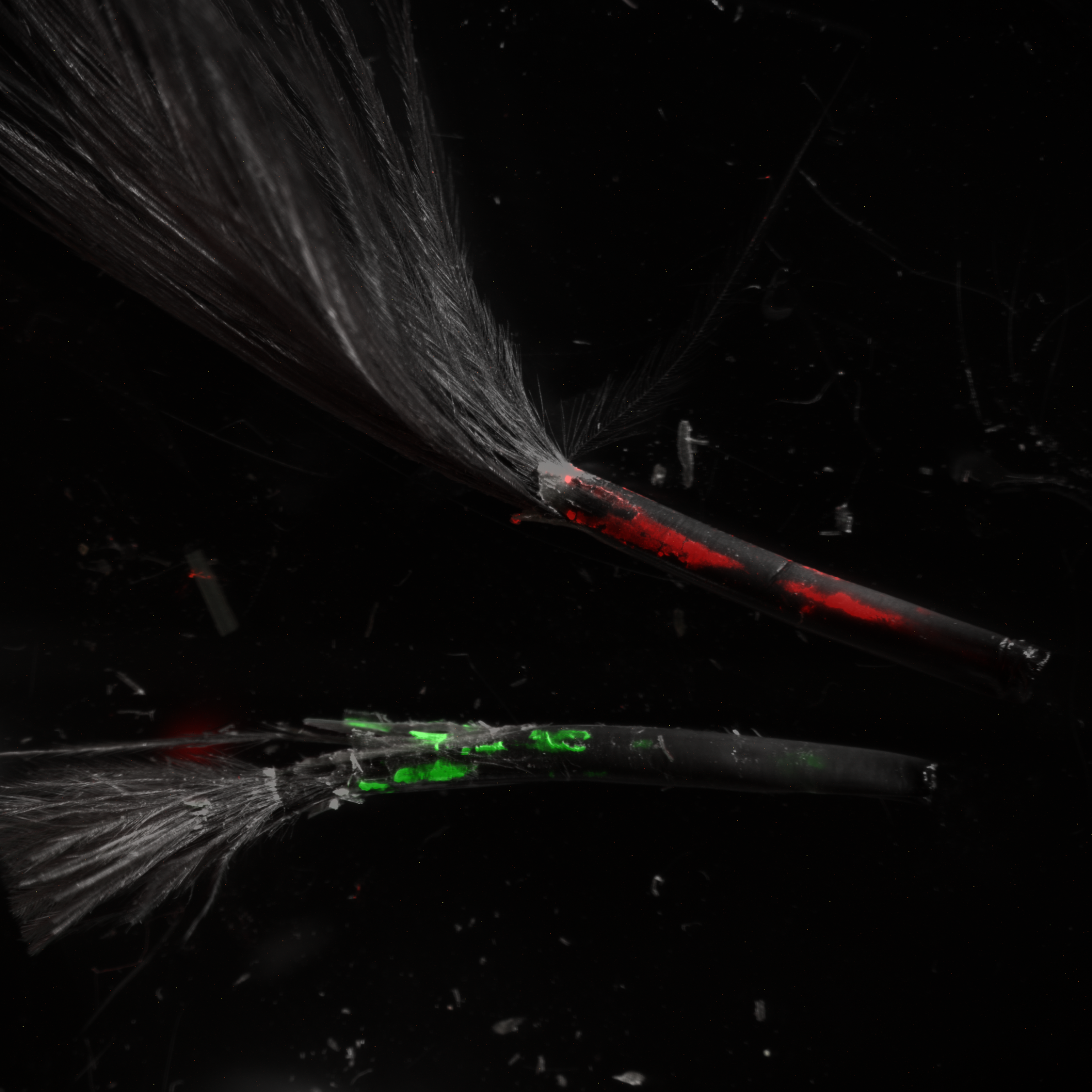Inhibition of Marek's Disease Virus Replication and Spread by 25-hydroxycholesterol and 27-hydroxycholesterol In Vitro
Marek's disease virus (MDV) causes a deadly lymphoproliferative disease in chickens, resulting in huge economic losses in the poultry industry. It has been suggested that MDV suppresses the induction of type I interferons and thus escapes immune control. Cholesterol 25-hydroxylase (CH25H), a gene that encodes an enzyme that catalyses cholesterol to 25-hydroxycholesterol (25-HC), is an interferon-stimulating gene (ISG) known to exert antiviral activities. Other oxysterols, such as 27-hydroxycholesterols (27-HC), have also been shown to exert antiviral activities, and 27-HC is synthesised by the catalysis of cholesterol via the cytochrome P450 enzyme oxidase sterol 27-hydroxylase A1 (CYP27A1). At 24 h post infection (hpi), MDV stimulated a type I interferon (IFN-α) response, which was significantly reduced at 48 and 72 hpi, as detected using the luciferase assay for chicken type I IFNs. Then, using RT-PCR, we demonstrated that chicken type I IFN (IFN-α) upregulates chicken CH25H and CYP27A1 genes in chicken embryo fibroblast (CEF) cells. In parallel, our results demonstrate a moderate and transient upregulation of CH25H at 48 hpi and CYP27A1 at 72hpi in MDV-infected CEF cells. A significant reduction in MDV titer and plaque sizes was observed in CEFs treated with 25-HC or 27-HC in vitro, as demonstrated using a standard plaque assay for MDV. Taken together, our results suggest that 25-HC and 27-HC may be useful antiviral agents to control MDV replication and spread.
